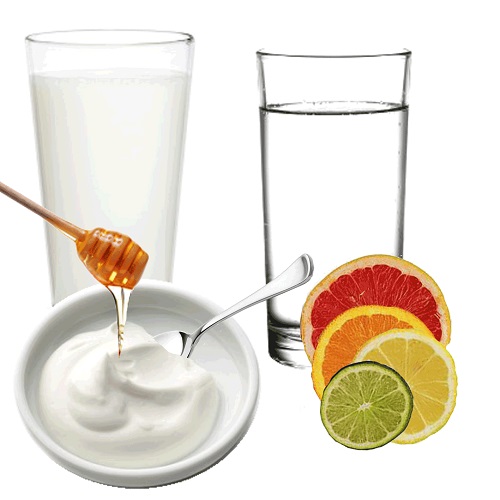Positive Health Online
Your Country

Common Dietary Mistakes
listed in ayurveda, originally published in issue 232 - August 2016
“Food can be poison or it can be medicine - it all depends on what we eat and when we eat it.”
The present article deals with the critical review of common dietary mistakes referred in terms of food-food interactions, food processing interactions. It also enlists a variety of incompatible dietary articles consumed in today's day-to-day life and its hazardous effects on health.

Heated Honey[1,2,3]
Always use raw, uncooked honey. Baking with honey or heating it in general turns it into a sticky glue that clogs the body’s channels and produces toxins. This includes having honey in your tea or drinking something hot after eating honey. Original source of Bee’s honey may be from poisonous buds / flowers. Also poisons are hot in nature, so eventually honey has hot qualities. When honey is mixed with hot and spicy foods the poisonous properties get enhanced and causes an imbalance of doshas. The broad conclusion is that uncooked honey is nectar whereas cooked honey is poison.
Ending Meals with Sweet[4]
Ayurveda argues that the sweet should come first. The sweet taste acts quickly on the taste buds and saliva. It enables flow of digestive secretions easier. If it is eaten after another food item, it being heavier, slows the digestive process, allowing undigested food mass to form and ferment. Sour, salty food eaten in the middle of the meal and pungent, bitter, astringent food after the meal improves digestion.
If the idea of gobbling a chocolate before bread-veggie doesn't agree with you, having even a bite or two of a sweet before vegetables and chapatti or rice will help you absorb vitamins and nutrients better.
Milk & Citrus Fruit Combination[5]
According to Ayurveda, milk and sour fruit are not to be consumed together. Sour fruit is digested very quickly and milk takes longer for the body to process. During that processing time, the fruit curdles the milk, potentially creating a sour stomach and lots of acidity. Eating bananas with milk can douse digestive fire, produce toxins and may cause allergies, cold and cough. Bananas become sour as they breakdown while milk remains sweet. This causes confusion to our digestive system and may result in formation of excessive toxins.
Yoghurt at Night[6]
According to Ayurveda, eating yoghurt at night causes 'ama' the release of certain toxins, which block channels of the body. Moreover yoghurt is very heavy to digest & aggravates kapha. During night period, there is natural predominance of Kapha in the body. So, curd consumption at night will further increase kapha (mucus development) leading to many complications like cold, cough, oedema, heart ailments, etc. Avoid eating yoghurt at night. Do not consume yoghurt directly. Recommended to add sugar, salt, jaggery or Indian gooseberry to it prior to consumption.
Drinking Water Immediately before or after Meals[7]
As per Ayurveda, drinking water before food dilutes and weakens Agni i.e digestive fire, because water is a coolant. This is a principle directly opposite to digestion strength, hence drinking water before food is not ideal. Drinking water after food affects both the quality of food and digestive fire. It gives a touch of the coolant effect to whatever food is eaten. Hence a person tends to become obese over a period of time by this method. Drinking water in between a meal helps to moisten the food; it helps to breakdown food particles into smaller pieces and it quenches thirst, hence it is an ideal. Conclusively, Ayurvedic texts recommend sipping plain water at meals. So for all those who think water can be consumed anytime and in any quantity should think over it.
From the above discussion, it is clear that arbitrary choice of food items can lead to several hazardous diseases unknowingly to the people. Therefore, it is important to be aware of good and bad food combinations
References
- Agnivesha , In Charaka Samhita Vol 1, Sutra Sthana, 26th Chapter, 84th Shloka, Elaborated by : Charaka & Dridhabala, Edited by Dr. Brahmanand Tripathi, Chaukhamba Surbharati Publisher, Varanasi,India. p496. 2006
- Vagbhatt, In Ashtang Hridya. Sutrasthan 5th Chapter, 53rd Shloka, Nirmala Hindi Commentry by Dr.Brahmanand Tripathi. Chaukhambha Sanskrit Publisher. Delhi, India. p.76. 2007.
- A. Annapoorani, K. R. Anilakumar, Farhath Khanum, N. Anjaneya Murthy, A. S. Bawa, Studies on the physicochemical characteristics of heated honey, honey mixed with ghee and their food consumption pattern by rats. AYU 31(2):141–146. Apr-Jun 2010
- Sushruta, Sushruta Samhita. 46th Chapter, 466th Shloka Sharirsthana. Vol. 1.; Ayurveda Tattva Sandipika Hindi Commentary by Kaviraj Ambikadutta Shastri. Chaukhamba Sanskrit Samsthana. p.220. Varanasi: 2008
- Agnivesha , In Charaka Samhita Vol 1, Sutra Sthana, 26th Chapter, 99th Shloka,; Elaborated by : Charaka & Dridhabala, Edited by Dr.Brahmanand Tripathi. Chaukhamba Surbharati Publisher. Varanasi,India. p498. 2006,.
- Agnivesha , In Charaka Samhita Vol 1, Sutra Sthana, 7th Chapter, 61st Shloka, Elaborated by : Charaka & Dridhabala, Edited by Dr. Brahmanand Tripathi,: Chaukhamba Surbharati Publisher. Varanasi,India. p187. 2006.
- Vagbhatt, In Ashtang Hridya. Sutrasthan 5th Chapter, 14th Shloka, Nirmala Hindi Commentary by Dr.Brahmanand Tripathi. Chaukhambha Sanskrit Publisher. Delhi,India. p.67. 2007
Bibliography
Agnivesha, Charaka Samhita Vol 1, by Dr. Brahmanand Tripathi, Varanasi. 2006.
Sushruta, Sushruta Samhita Vol 1, by Kaviraj Ambikadutta Shastri, Varanasi. 2008.
Vagbhatt, In Ashtang Hridya by Dr.Brahmanand Tripathi, Delhi, 2007.
A. Annapoorani et al. Studies on the physicochemical characteristics of heated honey, honey mixed with ghee and their food consumption pattern by rats. AYU 31(2):141–146. Apr-Jun 2010.
Comments:
-
Suresh singh said..
Nice
-
Catherine Crawford said..
This explains a lot, why eating the same foods but drinking water at different times could have such different affects.Really interesting, thank you.